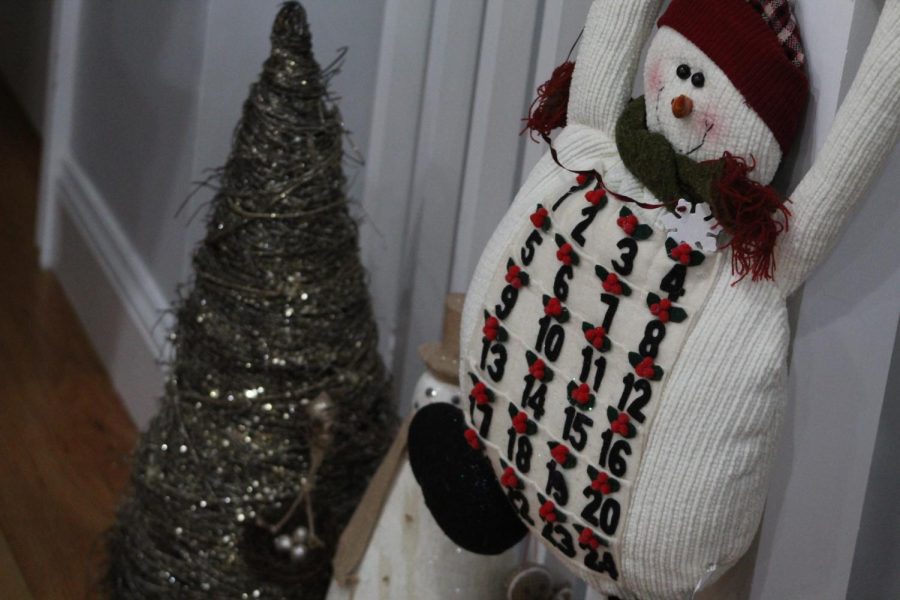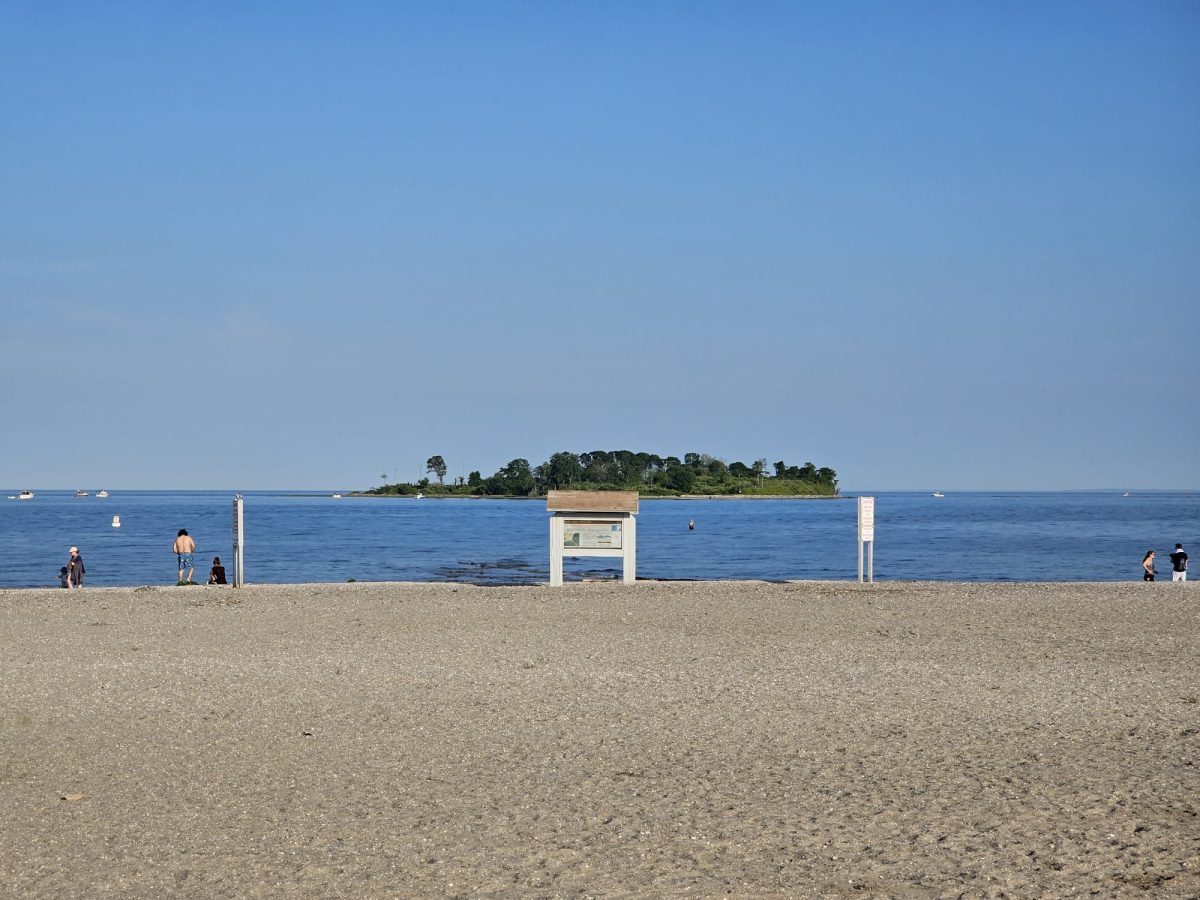Eggnog and Latkes
A History of Hanukkah and Christmas
Make the Season Bright: Christmas decorations are hung up at Jack Godek’s house.
December 20, 2021
Christmas needs no introduction. It is perhaps one of the most celebrated holidays in the world, being both the most popular in the United States, and is celebrated by over 2 billion Christians worldwide. However, Christmas is not the only holiday traditionally celebrated in the month of December, the other most famous being Hanukkah.
Both holidays share biblical roots through different sections of the Bible and Biblical history. The story of Christmas comes from the New Testament, in which Jesus is born in Jerusalem under a shining star and is placed in a manger.
Mr Henry Czajkowski, art teacher and supervisor of the Foran Bible and Prayer Club, specifies, “The story of the birth of Jesus Christ is found in the Holy Bible in the gospel of Matthew Chapter 1 verses 18-24 and in the gospel book of Luke Chapter 2 verses 1-20.”
While many elements of modern Christmas originated in ancient non-Christian societies, such as Rome, modern Germany, and Scandinavia, some features are truly biblical. One of these is the Nativity (meaning birth) and its representation.
Czajkowski continues, “…it is a mixture of traditions and scripture that have grown in the 2,000 years since Jesus’ birth.”
For most Americans, this story is well known. The story behind Hanukkah, however, is not as widely understood.
During the 200s BCE, there was a Kingdom known as the Seleucids. They were a Macedonian Greek Kingdom which ruled over part of the Levant we now know as Israel and Palestine, which at that time was called Judea, as well as modern-day Iran.
Despite their rule over the land, the Seleucids were not popular in Judea due to religious oppression, and because of that, a young rebel named Judah Maccabee (meaning Judah “the Hammer”) rose up.
He attempted to restart the temple in the city of Jerusalem after the Macedonians stopped it, but unfortunately, they didn’t have enough oil to dedicate it. Only one day’s worth sat in the temple’s reserves, whereas a permanent supply was needed.
While he sent someone to fetch more oil, they burnt what they had. By a miracle, the one day of oil lasted for eight, which was enough for the rider to return with the needed supply. This is why a common Hanukkah celebration is to eat foods fried in oil, most famously latkes.
Hanukkah has now become a widely celebrated holiday among Jewish communities in the U.S., especially around New York City.
Senior Jonathan Lahav spoke of his family’s celebration, stating, “I love the food, but most importantly the family aspect of it really pulls everything together. When I am with my family we all are yelling and singing which all just ends in laughing and having a good time.”
While Christmas in the Protestant and Catholic traditions is held on the 25th of December, the often forgotten Orthodox Church celebrates Christmas on January 6th or 7th. The reason for the time difference is calendars, more specifically, Orthodox Christians use the Julian Calendar, which is more ancient. On the other hand, Western Christians, use the Gregorian, created by Pope Gregory in the 1500s.
However, the calendar is not the sole difference between the two celebrations. Both cultural and religious differences are present.
Senior Angela Kapikian, an Armenian Orthodox Christian says, “Something that is different about our Christmas vs American is that on Christmas Day, we bless water and put holy Muron in it. This is an oil composed of olive oil, rose water, and 48 different herbs and flowers. We attend church on both Christmas Eve and day. Some orthodox will also do a nativity fast which is a fast 40 days before Christmas, or even a midnight mass tradition!”
These holidays are well known around the world as many peoples favorites, and with an estimated 31.7% of all people around the world being Christian or Jewish (according to the Pew Research Center) they are likely to be around for centuries to come.









